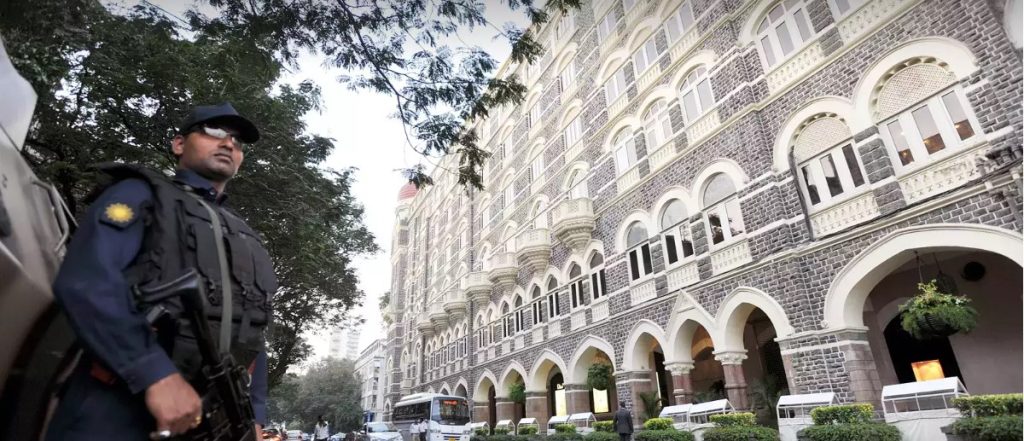Having got enormous global sympathy after the Hamas attack and kidnapping of hostages, Israelis are astounded at the huge backlash against their bombing of Gaza and determination to wipe out Hamas. They feel they are the victims, although far more Palestinians have died in Israeli bombing. They cannot understand why even well-wishers are urging restraint.
They should learn from former Prime Minister Manmohan Singh, says Thomas Friedman, famous New York Times journalist and a Pulitzer winner, in a recent column. In November 2008, Pakistani jihadis from Lashkar-e-Taiba, backed by Pakistan’s military intelligence, attacked Mumbai. They killed over 160 people including dozens at the Oberoi and Taj Mahal hotels. Indians were outraged by the temerity and callousness of the jihadis and called for revenge.
What was Manmohan Singh’s military response to the attack? He did nothing. This, says Friedman, was a remarkable, statesman-like act of restraint.
Shivshankar Menon, foreign secretary at the time, elaborated on the decision-making process. “I myself pressed at that time for immediate visible retaliation” against the jihadist bases or against Pakistani military intelligence, “which was clearly complicit,” Menon wrote. “To have done so would have been emotionally satisfying and gone some way toward erasing the shame of the incompetence that India’s police and security agencies displayed.
“But on sober reflection and in hindsight, I now believe that the decision not to retaliate militarily and to concentrate on diplomatic, covert and other means was the right one for that time and place.” The main reason, says Menon, was that any military response would have distracted attention from the outrageous nature of the attack on Indian civilians and tourists. Had India retaliated, the world would have had a “ho-hum reaction” says Menon, viewing this as just one more Indo-Pak clash, nothing unusual.
This was a clear gain of using diplomacy rather than force. Pakistan would not have been pressured to arrest and convict Hafiz Saeed, head of the Lashkar-e-Taiba, had Manmohan Singh retaliated.
But since India did not retaliate, the world watched, horrified, as the terrorists killed not just Indian civilians but foreign tourists and the Jews at Chabad House. Indian evidence on conversations between the terrorists and their handlers in Pakistan convinced the world of the nexus. US pressure forced Pakistan to arrest Hafiz Saeed, head of the Lashkar-e-Taiba. He was later released by a Pakistani court but was then arrested again and convicted for financing terrorism, without specifying a direct link to the Mumbai attack.
This was a clear gain of using diplomacy rather than force. Pakistan would not have been pressured to arrest and convict Saeed had Manmohan Singh retaliated.
However, Singh was castigated for his inaction. When the BJP came to power, it adopted a far more hawkish stance. When Pakistan assisted the Pulwama attack on Indian soldiers in 2019, India immediately retaliated with a bombing raid on Balakot on a Jaish terrorist camp in Pakistan. Pakistani planes retaliated, shooting down an India plane and capturing the pilot. India too claimed to have downed a Pakistani F-16. Diplomacy led the pilot to be released. Pakistan later took foreign journalists on a “conducted” tour to the site of Indian bombing at Balakot, claiming that there was no evidence of a destroyed terrorist camp. Both India and Pakistan claimed victory. This enabled tensions to ease. This was a diplomatic, not military solution.
Indian experience in Balakot shows that there is room to manoeuvre through what New Delhi carefully described as “non-military preemptive action”.
Balakot showed Pakistan that India was willing to cross the border to make an air strike. It also showed that Pakistan would retaliate, so Indian strikes should be limited ones that avoid quick escalation into a general war.
What are the lessons for Israel? First, restraint is important for global support. India’s restraint in 2008 earned it mass global sympathy and US pressure that ended in Hafiz Saeed’s jailing. It did not lose votes — the Congress and allies won the subsequent 2009 elections with a greatly increased majority. The BJP and PM Modi too received a boost from the ‘Balakot bump’.
Israel should realise that, while revenge is tempting and may yield votes in local elections, it will not win global sympathy. Indeed, it will diminish the world’s initial horror, equate the horrors of the two sides, and become just one more Israel-Palestine clash. Since Palestinians always suffer more casualties, they earn much more world sympathy.
The notion that Israel can somehow eliminate Hamas is illusory. Israel has in the past killed Hamas’ top leaders, but these were quickly replaced by even more determined jihadis. Indian experience in Balakot shows that there is room to manoeuvre through what New Delhi carefully described as “non-military preemptive action”.
Nations have to live with foes that cannot be quelled. Trying to eliminate the enemy is useless. In such conditions, restraint can yield dividends that revenge cannot.


